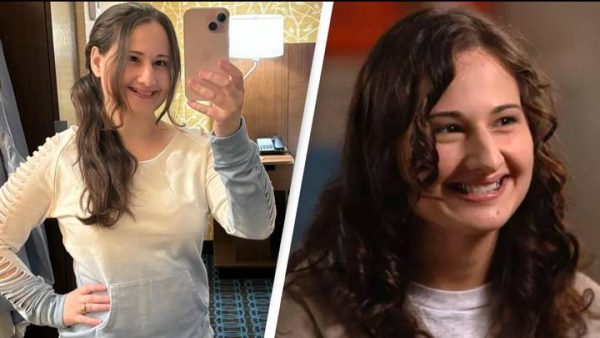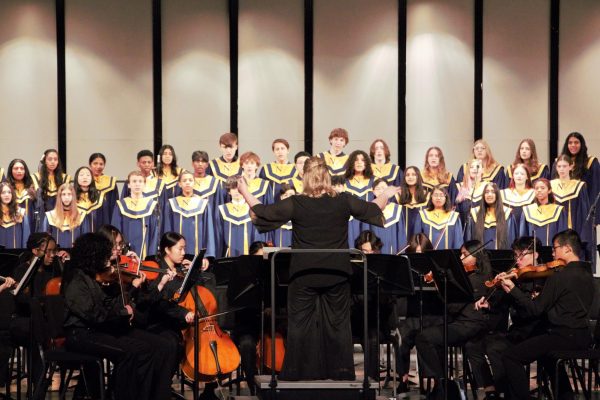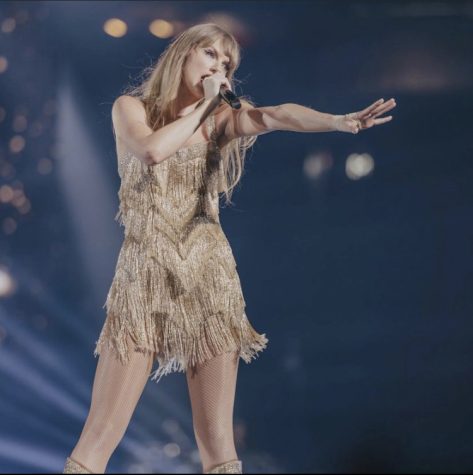Greta Gerwig’s ‘Little Women’ Movie Review

January 27, 2020
In a half-light corridor, standing in front of a door with her head bowed like a boxer prepared to go into the ring, we are introduced to Jo March. As she takes a deep breath and opens the door, we the audience, join her hesitant walk into a room full of men, smack in the middle of the timeline.
This version is the sixth film adaptation of Louisa May Alcott’s best-selling book ‘Little Women’, which was originally published in two volumes in 1868 and 1869. The movie, released on Christmas day 2019, and written and directed by Greta Gerwig, is the newest yet. The film stars Emma Watson, Saoirse Ronan, Florence Pugh and Eliza Scanlen as Meg March, Jo March, Amy March and Beth March respectively. Timothee Chalamet plays Theodore ‘Laurie’ Laurence, who Gerwig fondly refers to as ‘the fifth March sister.’ Filled to the brim with an incredible cast including Laura Dern (Marmie) and Meryl Streep (Aunt March), the movie lives up to all the expectations put on it.
The movie, like the book, follows the lives of the March sisters as they go through the adventure that is life. It draws parallels from their lives as children to their experiences as functioning adults. Gerwig explained in an interview with Vanity Fair the different filters she used to differentiate between the past and the present. The girl’s childhood is filled with golden light, warm colours and laughter. Scenes of running through the woods and playing pretend in the attic are directly paralleled with scenes of running through New York and Saoirse Ronan’s heartbreaking confession in an attic of pale blues. The present is almost all cold and white light that represents the loud silence of adulthood and its loneliness.
When all the March sisters are on screen, their chatter always fills the background. The blocking and choreography of all the scenes brings the viewer into their lives, and we are seemingly surrounded by a story many have known since they were children. Ronan and Chalamet are electric in their scenes together, and Oscar nominated actress Florence Pugh brings Amy into a whole new light.
Pugh’s speech about marriage being an economical proposition, almost entirely written by Gerwig herself, displays another side of the whiny younger sister. Amy and Jo rival each other in their ambitions and their passions, but their fundamental understanding of their world is almost completely opposite and Gerwig plays this dynamic brilliantly. Taking the hatred and love you could only have with your sibling, Ronan and Pugh turn an old rivalry into something new, a different take on the often villainized Amy March.
It’s an old story brought back for a new generation. And while most of the story has been left untouched, Gerwig did change the ending. She acknowledged the joke that Alcott had written – she acknowledged the way Alcott had been forced to write an ending that was quite the opposite of what she wanted. With a clever crack at the fourth wall, Gerwig managed to end the story the way Alcott would have, all those years ago, if she had been able to. While Jo in the books got married at the end, Alcott personally did not want her to. But alas, like Amy would point out, she was just a woman. And Jo had to marry.
Little Women was a story for families and a story about the sister’s lives, and it managed to capture it beautifully. Alcott had managed to bottle up the feeling of family and spill onto her pagers, and Gerwig has managed to do the same on the big screen. Whatever she does next, she will do it with all her heart, that’s for sure.










